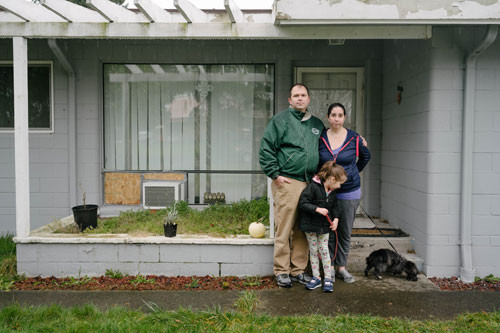The despair of US officials during the government shutdown
Hundreds of thousands of US workers will not be paid as the government shuts down, plunging them into financial crisis.
 |
| An armed US Secret Service agent stands guard outside the White House. Photo:Reuters |
Tanisha Keller, a single mother who works at the US Census Bureau, usually relies on her monthly paycheck to cover all her expenses. But now, with the US government still shut down on December 22, her life is in a precarious state as she faces the risk of not receiving a paycheck even when her next paycheck is due, according toNYTimes.
Ms. Keller, 42, and about 800,000 federal employees across the United States were supposed to get paid this week. But as the dispute between President Donald Trump and Congress over the $5 billion budget for a wall on the border with Mexico continues, they will not receive any money to pay their bills or credit cards that have reached their maximum limits.
Keller’s bank account is negative $169. She can no longer send her son, Daniel, a college student, $100 to buy books and supplies. She also doesn’t know how she’ll find the $1,768 she needs to pay next month’s rent on her apartment in the Waldorf, in southern Maryland, or cover the bills that are automatically deducted from her paycheck. She recently gave up her car to save money on gas.
“There’s no mercy,” she said. “By February, my rent will be overdue and I’ll need help.” As the government shut down, federal employees like Keller have had to dip into savings or max out their credit cards to cover their basic needs.
But those savings and credit lines are running out, and President Trump has warned that the government could remain shut down for months or even years if Democrats don’t approve his $5 billion border wall. The situation has left hundreds of thousands of government workers from Washington, D.C., to town halls and remote prisons desperate and angry. They are living in “shutdown survival mode,” opening new credit cards to pay bills, borrowing from friends and scraping what’s left in their pantries.
"I have a child to support and rent to pay, so I told the landlord that if there was any increase in rent, I would have to move," said Joseph Gudge, a 41-year-old electrical engineer with the Civil Aeronautics Administration who works at Seattle-Tacoma Airport in Washington state.
If the US government shutdown continues for a long time and the unpaid work continues to become unbearable, Gudge said he will have to quit his job. "Two months is the limit of my tolerance," he said. "Some of my colleagues have already started thinking about looking for other jobs."
 |
| Joseph Gudge (left) stands with his wife and children outside their rented home in Washington state. Photo:NYTimes. |
In Orlando, Florida, corrections officer Joe Rojas has started working for Uber to help pay off his $2,000 mortgage payment due next month. “This weekend, I’m going to spend time with my family driving for Uber,” Rojas said. “We accept the dangers of being a corrections officer to bring peace to society in exchange for a decent income. But no one goes to work for free like this.”
The average weekly paycheck for a federal employee is just $500, according to the American Federation of Government Employees, which represents 700,000 federal employees, even though some earn six figures a year. Financial nightmares that once seemed impossible, such as overdraft fees, late payments, and credit score drops, are now a reality for many. Many have filed for unemployment benefits.
Shelly Carver, 57, an Internal Revenue Service employee in Ogden, Utah, said she was increasingly concerned because not only she but also her three children who work for the agency were on unpaid leave. They were all due to receive paychecks on Jan. 14 or Jan. 17, and all four would be in serious financial trouble if they weren’t paid on time.
Carver is considering dipping into her $5,000 savings to help her children pay their bills. “They have no other resources,” she said. “If the shutdown continues, I’ll end up in the same situation as them.”
Belkys Colon, 51, a Department of Housing and Urban Development employee, fears she will be evicted if she doesn't get paid this weekend to pay her $1,400 rent. "I'm worried this is going to go on for a long time," she said. "I'm alone, what's going to happen to me? Who can help me?"
These days, Colon tries to be as frugal as possible. She buys no fresh food except milk and makes do with what she has left in the cupboard, from bread, cereal, cookies to packaged foods that “no one normally touches.” Still, she has to carefully calculate how much food she has left so as not to fall into despair.
For 44-year-old prison guard Angela Tucker, the choice is even more difficult. She is on medication following surgery to remove a breast cancer tumor and is now forced to decide whether to spend her money on medication or on food and childcare.
“The little budget that’s left has to be prioritized, what can be eliminated, what can be stretched, and what are the most essential needs,” Tucker said. “I’m only going to fill up half a tank of gas right now. I’m just hoping and praying that this will get me through.”
 |
| US President Donald Trump speaks outside the White House in December 2018. Photo:AFP. |
If Matt Kampf, 49, a firefighter in Montrose, Colorado, gets paid this Saturday, he will pay for his mortgage, insurance, groceries, the normal expenses of living the American dream.
Instead, the Kampfs are cutting back on expenses, canceling travel plans, canceling home entertainment subscriptions, limiting weekend outings, and even selling their pickup truck for $8,600 to pay the bills.
Like hundreds of thousands of other civil servants, Kampf said he loves his job and serving society, but he is not sure how much longer his family can endure if the unpaid work situation continues.
“The bitterness is real,” Kampf said. “If it continues through January, I don’t know what we’re going to do.” Meanwhile, the prospect of reopening the US government remains dim, with Trump declaring a “national emergency” to build a border wall rather than seeking a compromise with Congress to keep hundreds of thousands of government workers on their payrolls.


